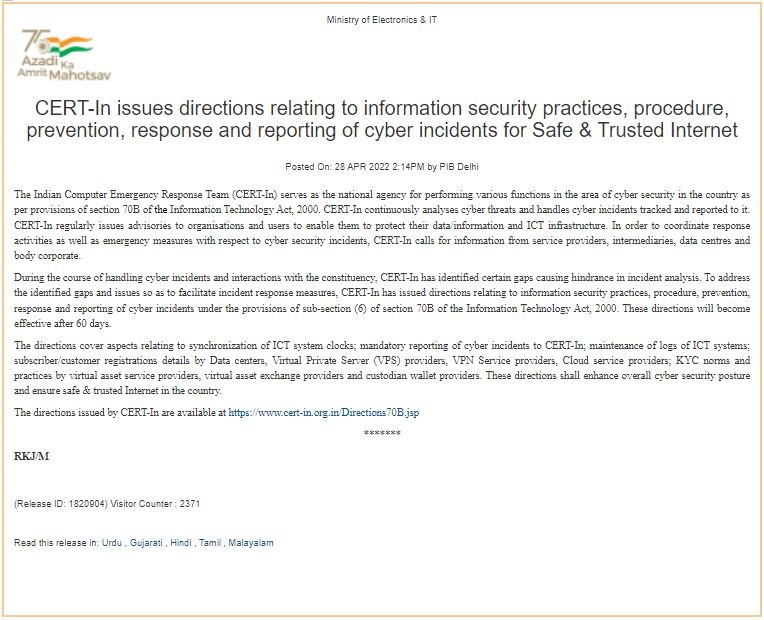A new guideline issued by the India’s Computer Emergency Response Team (CERT-In) became a polemic issue for multiple government IT agencies. The Indian agency has determined that technology organizations should implement measures for the reporting of 20 different types of cyber security incidents within six hours after their detection.
On its reasons for making this determination, the agency mentions that its teams identified “certain gaps that hinder the analysis of security incidents”; in addition to this new deadline, CERT-In will encourage the submission of incident reports by analog mediums such as telephone or fax, in addition to e-mail.
The new mechanisms will apply to service providers, intermediaries, data center operators, enterprises and government organizations that manage IT infrastructure.

As mentioned above, the report lists 20 types of security incidents, including information breaches and ransomware infections. Although it is obvious that the situation merits a report in these cases, on other occasions CERT-In provides very little concrete definitions, as is the case of those defined as “Attacks or suspicious activities that affect systems/servers/software/applications in the cloud”.
In addition to ambiguous definitions, CERT-In has received criticism about how short the report window is. Other legislative frameworks such as EU’s General Data Protection Regulation (GDPR) establish a deadline of 72 hours for the reporting of security incidents after their detection, while for the U.S. Government 24 hours are more than enough to submit these reports.
This is not the only update to the security incident reporting process in India. According to the new guidelines, organizations under this regulation must also keep a detailed record of all their information systems during the 180 days after the report, also having the obligation to deliver this data to CERT-In when requested.
Finally, additional requirements were established for organizations operating with cryptocurrency. Providers of services related to virtual assets will have to verify the identity of their customers and safeguard this data for at least five years, in what appears to be an aggressive measure against money laundering through cryptocurrency.
To learn more about information security risks, malware variants, vulnerabilities and information technologies, feel free to access the International Institute of Cyber Security (IICS) websites.

He is a well-known expert in mobile security and malware analysis. He studied Computer Science at NYU and started working as a cyber security analyst in 2003. He is actively working as an anti-malware expert. He also worked for security companies like Kaspersky Lab. His everyday job includes researching about new malware and cyber security incidents. Also he has deep level of knowledge in mobile security and mobile vulnerabilities.











